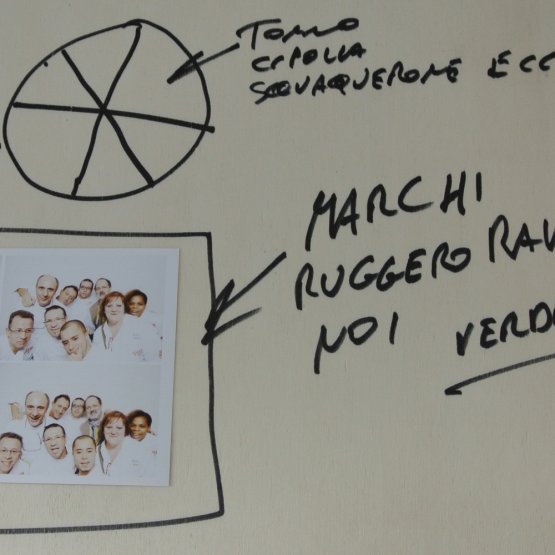I start from a memory and a question that Piero Gabrieli, centrepiece of Molino Quaglia, asked me in view of PizzaUp 2012. He wanted to know what was my favourite pizza. But not in the sense of what I ordered most frequently, rather the one I considered as something ideally perfect, something that was likely to be linked to the heart instead of the rules of pizza making, something I would do if I were to be a pizza chef. And here I went, down memory lane.

First of all, my origins are rooted where pizza is something acquired, and thus foreign. My mother’s side – I being born in Milan in 1955 – is divided between Como and Milan, my father’s even “worse”: Trento and Trentino where espresso coffee is always a little diluted, and pasta a couple of minutes overcooked. And pizza is a chimera. In the Sixties and Seventies ethnic cuisine, as we intend it now - with food from China and Japan, Indian and Arab specialties, from Africa and South America - was almost inexistent, and same went for those certainties of Italian quality that we now find everywhere, but which once could only be tasted on spot: I’m thinking of Genoese pesto or buffalo milk mozzarella, which at the time were non-existent under the shadow of Milan’s cathedral.
Same goes for pizza. Our grandmothers used to give my brother and myself a prize for the classic (and rare) good marks at school, taking us to pizzeria
Il Dollaro near Piazza Diaz. And there a rainbow started, full of incredible and new scents, and I ended up dreaming of the true pizza, the one I could have tasted in Naples, should they had ever taken me there.
So my ideal pizza is conditioned by the fact that to me
canederli and breaded veal cutlets are much more familiar. And for sure I’m not the only one, north of the Apennines. The arrival of pizza’s popularity in the North can sound like the invasion of a different culture in exactly the same way as happens today with kebabs, opposed by some politics for reasons that have little to do with the quality of the food per se. Fear of what’s different, of integration, of the hygiene of the restaurant and of those who work there and so on, when, in truth, the discrimination should be with regards to a good or a bad product, not skin colour.
My pizza has relevance also in view of
PizzaUp because the 80 pizza chefs who were present at the event were, on the last day, divided into 8 teams, each of which adopted the recipe of one journalist. Apart from the reporter who had the enthusiasm of a postal employee, mortifying the work of the assigned master pizza chefs, a nice combination of ideas, memories and thoughts were born and developed from this, with me flaunting my own, tied to a
Pizza with tuna and onions, a preparation that had been “sleeping” for a long time, and came back to life at
Molino Quaglia.
My ideal pizza has no tomato and no mozzarella, even though the one I regularly order, especially when in standard pizzerias, is the one with cooked prosciutto and the addition of anchovies. My ideal pizza has nothing to do with pizza
Margherita because at the seaside in Levanto, between Sestri and Cinque Terre, my mother was a master in baking a bread disc rich in (tinned) tuna, (white) onions and (black) olives, plus chopped parsley (a lot of that) and basil (just a little). And of course olive oil. Forty years later, here are fresh tuna, stewed onions, stoned olives plus a couple of artistic touches because, after all, at
PizzaUp there were plenty of master pizza chefs. In the next article you will find the recipe, step by step.